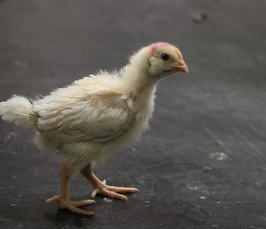Institute Seminar - Gabriella Gall & Isabelle Laumer
Institute Seminar by Gabriella Gall & Isabelle Laumer
- Date: Jul 19, 2022
- Time: 10:30 AM - 11:30 AM (Local Time Germany)
- Speaker: Gabriella Gall & Isabelle Laumer
- Location: Hybrid meeting
- Room: Seminar room MPI-AB Bücklestrasse + Online
- Host: Max Planck Institute of Animal Behavior
- Contact: all.science@ab.mpg.de

Exploring the effects of experienced in-ovo soundscape on chick social and vocal behaviour (by Gabriella Gall)
To maintain the benefits of group living, many animals need to make group decisions and coordinate their actions oftentimes using vocal signals to mediate these processes. The production and appropriate use of vocal signals develops over an individual’s lifetime and is refined by experience. Many animals, e.g. birds, make their first experiences as early as within the egg during incubation. As part of my fellowship, I explore the effect of in-ovo soundscape (maternal calls) on later exploratory, social and vocal behaviour using domestic chicken chicks (Gallus gallus). In this presentation, I will give an overview over last-years pilot study and some first results, as well as presenting my plans for my coming 'field season', were I aim to investigate the mechanisms of hatching synchronization in domestic chicken through acoustic and vibrational cues.
Flexible decision-making, innovation and exploration in Goffin cockatoos and orangutans (by Isabelle Laumer)
Isabelle Laumer is a primatologist and cognitive biologist that has studied great apes and Goffin cockatoos at the University of Vienna, Austria, at the Max Planck Institute in Leipzig, at the University of California Los Angeles, U.S. and at the Max Planck Institute of Animal behavior in Konstanz. So far, her research has been focused on physical cognition (tool-use & manufacture, tool innovation, template matching, flexible decision-making) and extends to social cognition (prosociality, inequity aversion, delay of gratification, theory of mind and playful teasing). In her current postdoc position at the Max Planck Institute in Konstanz she investigates the interplay between cognitive performance and the psychological motivation of curiosity in wild and captive orangutans and chimpanzees.